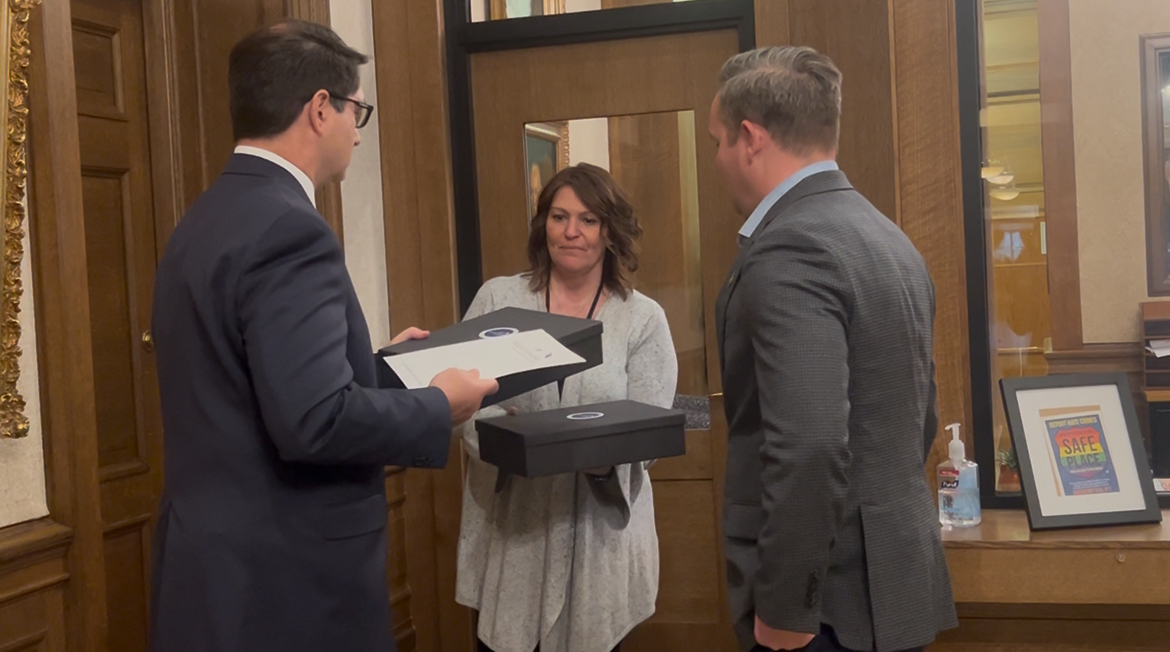Related Articles
Relevant Topics
-
Arizona
-
Bellevue
-
Democratic Party
-
Florida
-
Hillary Clinton
-
Indiana
-
Kirby Wilbur
-
KVI
-
Mercer Island
-
Minnesota
-
Missouri
-
Montana
-
Nevada
-
NOAA Weather Prediction Center
-
North Dakota
-
Pennsylvania
-
Republican Party
-
Texas
-
United States House of Representatives
-
United States of America
-
United States Senate
-
Washington
-
Washington Policy Center
-
West Virginia
-
White House
-
Wisconsin
Key Findings:
- Washington Policy Center guest speaker, former Washington Republican party chairman, political commentator and talk radio host Kirby Wilbur provided an election analysis at a recent WPC breakfast event.
- He noted that the vaunted blue wave in the 2018 election was not as large some experts predicted.
- The election showed Washington state voters tend to reject tax increases even as they tend to prefer left-leaning candidates.
- In preparation for future elections, Republicans need to reach out to younger, more diverse voters.
- In addition, Wilber said Republicans need to be more united in their message to be successful in 2020.
Introduction
On November 15, 2018, Washington Policy Center held its final monthly Eastside Breakfast for 2018, at the Bellevue Grille in Bellevue. This invitation-only event featured a discussion with Kirby Wilbur, well-known political commentator, former Washington state party chairman and talk radio host on AM 570 KVI. Mr. Wilbur shared his perspective on the results of the 2018 midterm elections in Washington and across the country.
Overall, his conclusion was simple: The expected blue wave was not as big as it could have been, but moving forward the Republican party must thoroughly rebrand itself if it expects a successful election outcome in 2020.
A look at Mercer Island
Before Wilbur spoke, Mike Cero, a former Mercer Island City Councilmember, Washington Policy Center supporter, and strong advocate for lowering the tax burden imposed on Mercer Island residents, briefed attendees on the voters’ recent rejection of their city’s Proposition 1.
Proposition 1 would have imposed a property tax increase for basic city services. For a municipality as politically left-leaning as Mercer Island, Cero said, its defeat came as a pleasant surprise. Cero said this result, as well as the other rejections of tax increases across the state, demonstrates that voters tend to vote against taxes even though they might vote for left-leaning candidates at the same time.
Hard truths for Republicans in Congress
Next, Kirby Wilbur discussed the nationwide results of the mid-term election. For Republicans, Wilber said that “hard truths need to be faced.” He explained that many political strategists assumed that the Republicans were going to do fairly well for a mid-term election with a president of the same party in the White House. Historically, the party of the current president loses seats in the House of Representatives, and that was expected in this election.
However, Republicans lost about 10 more seats than expected. Wilbur said this happened because the Democratic party ran moderate candidates who took issues away from Republicans. The most prominent example of this, he said, was the number of military veterans who ran on the Democratic ticket. In doing so, the Democrats took away national security as an issue from Republicans and allowed them to sway moderate voters to the left.
Strategists had full confidence that Republicans would maintain a strong majority in the U.S. Senate, with only one Republican Senator running for re-election in a state that Hillary Clinton carried in 2016. Some political analysts even predicted an increase of five or six seats in the Republican majority in the Senate.
Instead, the Republicans barely managed to maintain their majority, losing seats in Arizona and Nevada, losing challenges in West Virginia, Wisconsin, Montana, Minnesota, and Pennsylvania, but picking up seats in Florida, Indiana, Missouri and North Dakota, for a net gain of two seats. Republicans also successfully defending a seat in Texas, and won a tight governor’s race in Georgia.
Looking ahead to 2020
When discussing what the 2020 election might hold, Wilbur said that Republicans need to change their platform and their overall message. He said, “Republicans need to run on something other than taxes and immigration.” In the 2018 election, it became abundantly clear that Republicans were losing their base in the suburbs, specifically white women, young people, and those with incomes of more than $100,000 a year.
To counter this trend, Wilber suggested that the Republicans unite their message, adjust it to include the changing demographics in the United States, and counter the rhetoric that has been used to negatively characterize members of the GOP.
He said that to be successful in the future, Republicans will need to discover and utilize members of different communities to spread the message of economic and political freedom. Wilbur concluded his discussion by saying, “If you don’t invite someone through the door, they won’t come in.”



